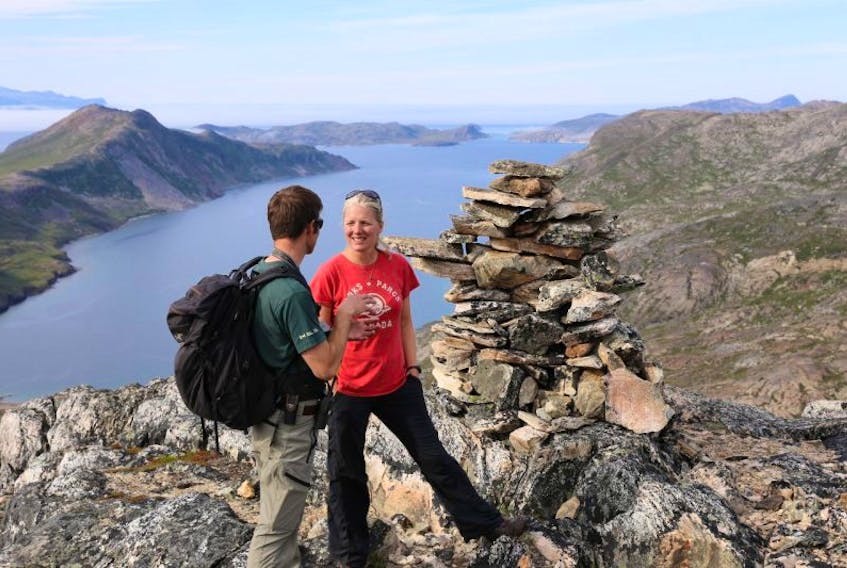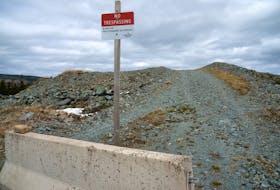
Catherine McKenna has spoken about her time in the park with several media outlets, including The Telegram earlier this week. In interviews, she has spoken about how climate change is affecting Inuit, including the Inuit of Nunatsiavut, having heard directly from individuals working in the park and on the all-indigenous co-management board.
The park covers 9,700 square kilometres, about 200 kilometres north of Nain.
“I wanted to see how (the board) was working, and also I wanted to see the impacts of climate change and hear first-hand from Inuit about how it’s impacting on their life,” she said, when asked why she chose to make the trip.
“It was an incredible experience. There’s nothing like the Torngat Mountains that I’ve ever seen.”
Related sites:
Guardian report
Torngat Mountains National Park
RELATED STORY:
Return to Nutak (On forced relocation of Labrador Inuit)

McKenna had the full tourist experience: hiking, fishing, iceberg-spotting and sharing meals at the remote base camp. She saw her first wild polar bear.
The minister was also taken to Sallikuluk, an island with more than 600 Inuit graves, where she was told about the spiritual significance of the location — resting between the mountains and caribou herds, and the ocean, with its seal, arctic char and other bounty.
She visited Hebron, a community to the south, abandoned as a result of forced relocation.
“Hearing first-hand the impacts of the relocation on Inuit families, on culture was pretty powerful,” she said.
Specific to climate change, she asked about changes in the park environment, hearing about challenges for a wide variety of species, including the caribou.
She heard about the human experience.
“I heard about how you have Inuit hunters who used to be able to rely on traditional knowledge to understand the thickness of the ice before going hunting and they can’t do that anymore and some are falling in,” she said.

On Aug. 7, two days after the minister concluded her time in the Torngats, The Guardian reported U.S. Department of Agriculture employees had been told to avoid using the term “climate change.” The report cited internal emails including lists of terms that should be avoided, and potential alternatives. One example provided was to axe “climate change” from communications and replace it with “weather extremes.”
McKenna was asked what runs through her mind as stories like this come out, in relation to the experiences she described from her four days in the Torngats.
“It just makes me more committed to talking in real terms about the impacts of climate change on real people. I think that it’s easy to sort of dismiss talk about climate change and not take it seriously, but it’s pretty hard when you start thinking about the impacts on regular people — whether it’s on Inuit or residents of Florida,” she said.
“It’s real and it has an impact and I need to go to these places so that I can tell real stories of the impact on real people and why we need to act.”









